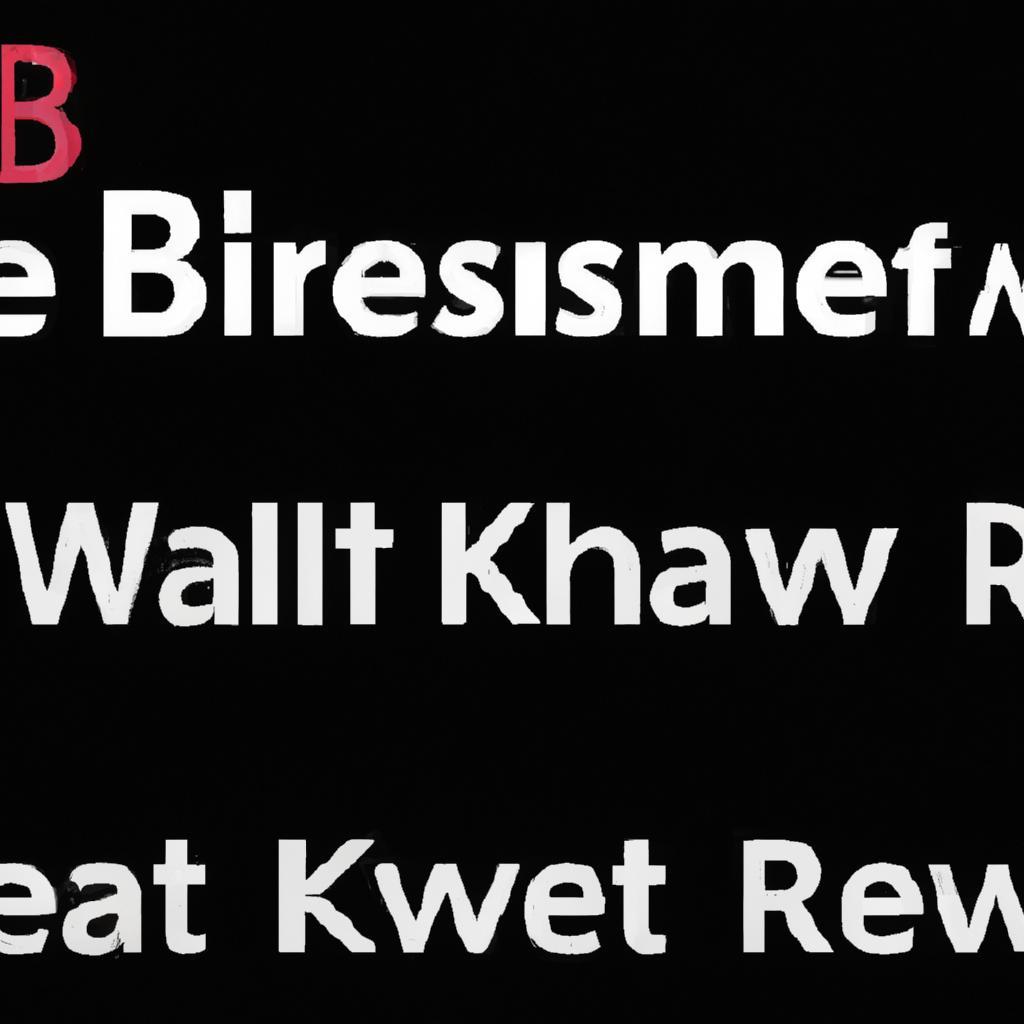Every morning, Max the golden retriever eagerly awaits his bowl, tail wagging in anticipation. His owner, Sarah, knows that a balanced diet is crucial for his health and happiness. She carefully measures high-quality kibble, enriched with essential nutrients, and adds a sprinkle of fresh vegetables for a burst of flavor. Each meal is a ritual, ensuring Max gets the protein he needs for energy and the vitamins for a shiny coat. By investing in his daily nutrition, Sarah isn’t just feeding Max; she’s nurturing a vibrant, joyful companion. What does your dog eat every day? Make it count!
Contents
- Understanding the Nutritional Needs of Dogs for Optimal Health
- Choosing the Right Dog Food: Types and Ingredients to Consider
- Establishing a Balanced Feeding Routine for Your Canine Companion
- Common Dietary Mistakes to Avoid for a Happier, Healthier Dog
- Q&A
Understanding the Nutritional Needs of Dogs for Optimal Health
To ensure your canine companion thrives, it’s essential to understand their unique nutritional requirements. Dogs, like humans, need a balanced diet that includes a variety of nutrients to support their overall health. A well-rounded diet typically consists of **proteins**, **fats**, **carbohydrates**, **vitamins**, and **minerals**. Each of these components plays a crucial role in maintaining optimal bodily functions, from energy production to immune support.
**Proteins** are the building blocks of your dog’s body, essential for muscle development, tissue repair, and immune function. High-quality protein sources such as chicken, beef, fish, and eggs should be prioritized in their daily meals. Additionally, **fats** provide a concentrated source of energy and are vital for healthy skin and a shiny coat. Look for sources of omega-3 and omega-6 fatty acids, which can be found in fish oil and flaxseed oil, to promote cardiovascular health and reduce inflammation.
Carbohydrates, while not as critical as proteins and fats, still play an important role in your dog’s diet. They provide a quick source of energy and aid in digestive health. Opt for whole grains like brown rice and oats, as well as vegetables such as sweet potatoes and peas, which offer fiber and essential nutrients. Furthermore, incorporating a variety of **vitamins** and **minerals** is crucial for your dog’s well-being. These micronutrients support various bodily functions, including bone health, vision, and immune response. A balanced commercial dog food often contains the necessary vitamins and minerals, but you can also supplement with fresh fruits and vegetables.
Lastly, it’s important to tailor your dog’s diet to their specific needs, which can vary based on factors such as age, breed, size, and activity level. Puppies, for instance, require more calories and nutrients to support their rapid growth, while senior dogs may benefit from a diet lower in calories but higher in fiber to aid digestion. Regular consultations with your veterinarian can help you determine the best dietary plan for your furry friend, ensuring they receive the optimal nutrition they need for a long, healthy life.
Choosing the Right Dog Food: Types and Ingredients to Consider
When it comes to selecting the best nutrition for your canine companion, understanding the various types of dog food available is crucial. The market offers a plethora of options, including **dry kibble**, **wet food**, **raw diets**, and **homemade meals**. Each type has its own set of advantages and disadvantages, making it essential to consider your dog’s specific needs, lifestyle, and preferences. For instance, dry kibble is often more convenient and cost-effective, while wet food can be more palatable and hydrating for dogs that may struggle with water intake.
Ingredients play a pivotal role in determining the quality of dog food. Look for products that list **high-quality protein sources** as the first ingredient, such as chicken, beef, or fish. These proteins are vital for muscle development and overall health. Additionally, consider the inclusion of **whole grains** like brown rice or oats, which provide essential carbohydrates for energy. It’s also beneficial to choose foods that incorporate **fruits and vegetables**, as they offer vital vitamins, minerals, and antioxidants that support your dog’s immune system.
Be cautious of fillers and artificial additives that can detract from the nutritional value of dog food. Ingredients such as **corn, soy, and wheat** are often used as cheap fillers and may not provide the necessary nutrients your dog requires. Instead, opt for brands that prioritize **natural ingredients** and avoid artificial colors, flavors, and preservatives. Reading the ingredient list carefully can help you make informed decisions that contribute to your dog’s long-term health and well-being.
Lastly, consider your dog’s age, size, and activity level when choosing food. Puppies, adult dogs, and seniors have different nutritional requirements, and selecting a formula tailored to their life stage is essential. Additionally, active breeds may require higher protein and fat content to sustain their energy levels, while less active dogs may benefit from lower-calorie options to maintain a healthy weight. By taking these factors into account, you can ensure that your dog receives a balanced diet that supports their unique needs.
Establishing a Balanced Feeding Routine for Your Canine Companion
Creating a balanced feeding routine for your dog is essential for their overall health and well-being. A well-structured diet not only supports their physical growth but also enhances their energy levels and mood. To achieve this, it’s important to consider the specific nutritional needs of your canine companion based on their age, breed, and activity level. By tailoring their meals accordingly, you can ensure they receive the right balance of nutrients to thrive.
When planning your dog’s daily meals, focus on incorporating a variety of food groups. A balanced diet typically includes:
- High-quality protein sources: Look for meats like chicken, beef, or fish, which are vital for muscle development and repair.
- Whole grains: Ingredients such as brown rice or oats provide essential carbohydrates for energy.
- Fruits and vegetables: Incorporate options like carrots, blueberries, or spinach, which offer vitamins, minerals, and antioxidants.
- Healthy fats: Sources like fish oil or flaxseed can promote a shiny coat and healthy skin.
Consistency is key when establishing a feeding routine. Aim to feed your dog at the same times each day to help regulate their digestion and metabolism. This predictability can also reduce anxiety around mealtime. Depending on your dog’s age and size, you may choose to feed them two to three meals a day. Always monitor their weight and adjust portion sizes as necessary to maintain a healthy body condition.
Lastly, hydration is just as important as nutrition. Ensure your dog has access to fresh, clean water at all times. Proper hydration supports digestion, nutrient absorption, and overall health. Additionally, be mindful of any treats or snacks you offer throughout the day, as these can contribute to their overall caloric intake. By following these guidelines, you can establish a balanced feeding routine that keeps your furry friend happy and healthy.
Common Dietary Mistakes to Avoid for a Happier, Healthier Dog
Feeding your dog a balanced diet is crucial for their overall health and happiness. One common mistake many pet owners make is opting for low-quality dog food that is filled with fillers and artificial ingredients. These products may seem economical, but they often lack the essential nutrients your dog needs. Instead, invest in high-quality dog food that lists real meat as the first ingredient and avoids unnecessary additives. Your furry friend deserves the best, and a nutritious diet can lead to a longer, healthier life.
Another frequent error is overfeeding or underfeeding. Many owners are unaware of their dog’s specific dietary needs based on their age, size, and activity level. It’s essential to follow the feeding guidelines provided by your veterinarian or the dog food manufacturer. Regularly monitor your dog’s weight and adjust their portions accordingly. Remember, maintaining a healthy weight is vital for preventing obesity-related health issues, such as diabetes and joint problems.
Additionally, some pet owners mistakenly believe that human food is safe for dogs. While certain fruits and vegetables can be beneficial, many common foods are toxic to dogs, including chocolate, grapes, and onions. Always research before sharing your meals with your pet. Instead, consider offering healthy dog-friendly treats or snacks that can enhance their diet without posing any risks. This way, you can indulge your dog while ensuring their safety and well-being.
Lastly, neglecting to provide fresh water is a critical oversight. Hydration is just as important as nutrition, and many dogs do not drink enough water daily. Ensure your dog has access to clean, fresh water at all times. You can encourage them to drink more by adding water to their food or providing ice cubes as a fun treat. Keeping your dog hydrated will support their digestion, energy levels, and overall health, contributing to a happier, healthier life.
Q&A
-
What should I feed my dog daily?
Dogs require a balanced diet that includes:
- High-quality dog food: Choose a brand that meets AAFCO standards.
- Proteins: Look for real meat as the first ingredient.
- Fruits and vegetables: Incorporate safe options like carrots and blueberries.
- Healthy fats: Omega-3 and Omega-6 fatty acids are essential for a shiny coat.
-
How much food should I give my dog?
The amount of food depends on your dog’s size, age, and activity level. Generally:
- Small breeds: 1/2 to 1 cup per day.
- Medium breeds: 1 to 2 cups per day.
- Large breeds: 2 to 3 cups per day.
Always consult your veterinarian for personalized recommendations.
-
Can I feed my dog table scraps?
While some human foods are safe, many can be harmful. Stick to:
- Safe options: Cooked lean meats, plain rice, and certain fruits.
- Avoid: Chocolate, grapes, onions, and anything high in fat or sugar.
Moderation is key; table scraps should not exceed 10% of your dog’s daily intake.
-
Should I change my dog’s diet regularly?
Consistency is crucial for your dog’s digestive health. However:
- Age transitions: Puppies, adults, and seniors have different nutritional needs.
- Health issues: Consult your vet if your dog has specific dietary requirements.
Gradual changes are best to avoid digestive upset.
understanding your dog’s daily dietary needs is crucial for their health and happiness. By providing a balanced diet tailored to their age, size, and activity level, you can ensure a long, vibrant life for your furry companion. Make informed choices today!

大家好,我是彼得潘,專業的手法身體治療師。我喜歡探索和研究各種主題,並透過與人工智慧的合作分享專業、實用、有趣的文章。我們定期進行人工審核,以確保內容的準確性。如果您發現文章中有任何不準確的地方,請隨時與我們聯繫,我們會及時糾正。您可以透過 [email protected] 與我們聯繫。



